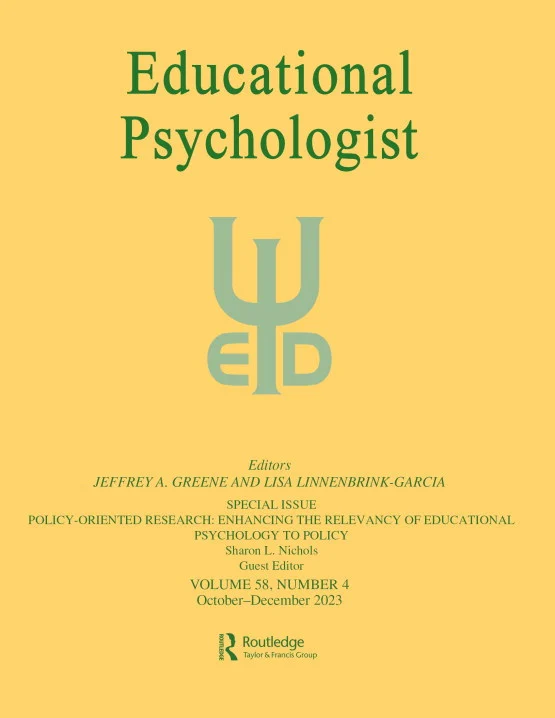Building bridges to advance the Community of Inquiry framework for online learning
IF 11.4
1区 心理学
Q1 EDUCATION & EDUCATIONAL RESEARCH
引用次数: 33
Abstract
Abstract The COVID-19 pandemic forced institutions of higher education around the world to quickly transition to forms of distance education, including synchronous and asynchronous online learning. Often lacking conceptual, empirical, and practical understanding of online pedagogy, many institutions have met this endeavor with mixed success. It seems inevitable that online learning will continue to play a key role in all sectors of education and, accordingly, that online pedagogy deserves a more mainstream focus. To help build a joint understanding of foundational knowledge between the online learning, educational technology, and educational psychology communities, in this article, we summarize the most frequently cited conceptual model that shapes research and practice in the field of higher education online learning: the Community of Inquiry (CoI) framework. We describe the original CoI model and its foundational components (i.e., cognitive, social, and teaching presence) and highlight opportunities for improvement of the model by incorporating the educational psychology and learning sciences research base to inform: (1) conceptualizations of the social dimensions of collaborative learning and (2) understanding of learner contributions to online collaborative education including self-, co-, and shared regulation of learning. We propose that a new, more comprehensive conceptualization of the regulation of collaborative online learning be integrated into the existing CoI framework and that a new “presence” be referenced going forward—“Learning Presence.” Through this work, we strive to develop a more nuanced, generative, and informed vision of the future of online learning informed by relevant contemporary conceptualizations in educational psychology.搭建桥梁,推进在线学习的探究社区框架
新冠肺炎疫情迫使世界各地的高等教育机构迅速过渡到远程教育形式,包括同步和异步在线学习。由于缺乏对在线教学的概念、经验和实践理解,许多机构在这一努力中取得了成败参半的成功。似乎不可避免的是,在线学习将继续在教育的各个领域发挥关键作用,因此,在线教学应该得到更主流的关注。为了帮助在在线学习、教育技术和教育心理学社区之间建立对基础知识的共同理解,在本文中,我们总结了在高等教育在线学习领域塑造研究和实践的最常被引用的概念模型:探究社区(CoI)框架。我们描述了原始的CoI模型及其基本组成部分(即认知、社会和教学存在),并强调了通过结合教育心理学和学习科学研究基础来改进该模型的机会,以告知:(1)协作学习的社会维度的概念化;(2)理解学习者对在线协作教育的贡献,包括自我、共同和共享的学习调节。我们建议将一个新的、更全面的协作在线学习监管概念整合到现有的CoI框架中,并提出一个新的“存在”——“学习存在”。通过这项工作,我们努力通过教育心理学中相关的当代概念,为在线学习的未来发展一个更细致、更有生动性和更有见地的愿景。
本文章由计算机程序翻译,如有差异,请以英文原文为准。
求助全文
约1分钟内获得全文
求助全文
来源期刊

Educational Psychologist
Multiple-
CiteScore
19.10
自引率
3.40%
发文量
16
期刊介绍:
The Educational Psychologist is a scholarly journal dedicated to exploring the psychology of learning and instruction. Articles in this journal encompass a diverse range of perspectives, from examining psychological mechanisms to exploring social and societal phenomena related to learning and instruction. The journal publishes theoretical and conceptual articles, as well as reviews and meta-analyses, that significantly contribute to theory or advance the methods used to explore educational psychology. Emphasizing innovation and advancing understanding, the journal does not publish articles solely reporting the methods and results of empirical studies; instead, all submissions, including reviews and meta-analyses, must offer clear implications for advancing theory. In addition to regular articles, the journal features special issues that delve into important themes in educational psychology, along with focal articles accompanied by peer commentary.
 求助内容:
求助内容: 应助结果提醒方式:
应助结果提醒方式:


